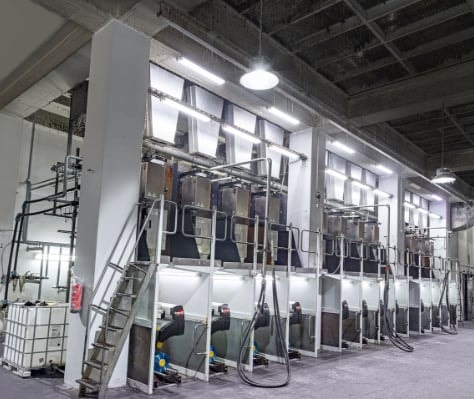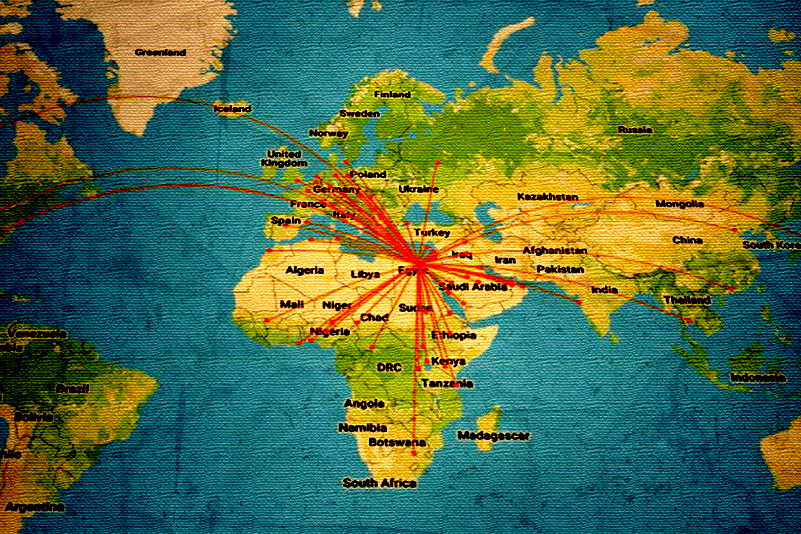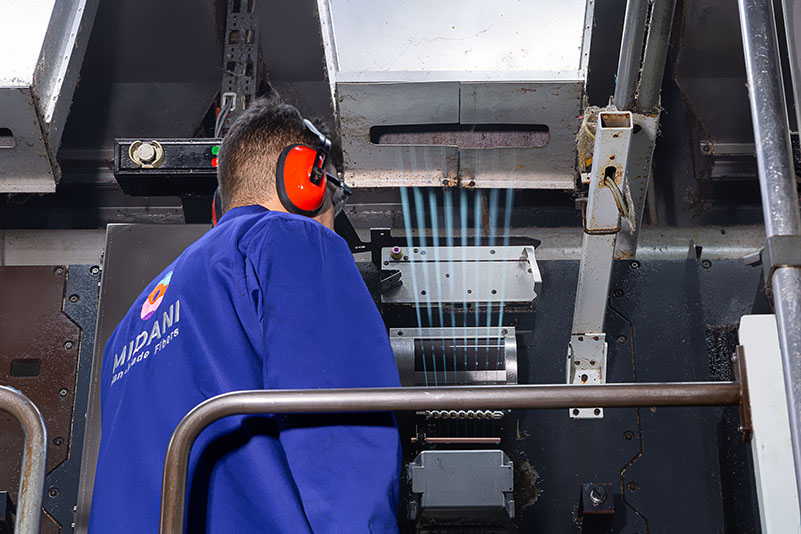About The Textile Industry in Egypt
Known For centuries as the “white gold,” Egyptian cotton, with its unparalleled characteristics and strength. that makes the fabric more resilient and more resistant to stress, is considered one of the finest natural fibers in the world.Egypt produces about 360000 Feddan of pure cotton, with total exports of 400 m$ most of which is to Turkey and the EU countries. But since the private sector has entered the market, synthetic yarn fabrics like polyester and acrylic are becoming more popular, especially for exports with a wide range of specifications for both weaving and knitting applications. The manufacturing of woven and knitted fabrics, mainly for the garment and home textiles industries, has continued to increase in Egypt. The Textile Industry in Egypt was the primary industry chosen by the Ministry of Trade and Industry in 2016 as the foundation of the Egyptian economy. Sector stakeholders are trying to accomplish three key goals:
- develop the industry.
- stabilize imports.
- boost exports under the “Sustainable Development Strategy (SDS): Egypt Vision 2030.”
So here are six reasons why Egypt is a significant player in the field of textiles and clothing:
1- Vertical Integration
Egypt’s textile and apparel industry has the highest degree of vertical integration on the continent of Africa. The nation has a robust infrastructure and spends over $15 billion on irrigation, highways, electrical networks, and 15 marine ports. Furthermore, Egypt is the continent’s top producer of extra-long staple cotton.2- shorter lead times
Egypt’s particular location and well-developed maritime and air freight infrastructure allowed it to serve as the continent of Africa’s connection to the rest of the globe. From Egypt it takes between 6 and 12 days to ship goods to Europe, 12 days to the USA, 2 to 4 days to the Arab & Gulf countries. roughly 10 to 18 days to North Africa. Egypt is the best, fastest, and most trustworthy sourcing location. with an average sample manufacturing duration of between 3 and 7 days.3- Competitive production costs
Egypt provides a sizable, cost-effective labor force that is skilled. With minimum pay of $115, Egypt has inexpensive labor expenses compared to rivals like China, Cambodia, India, and Vietnam. In contrast to China, where electricity costs three to four times as much, we pay about 7 cents per kilowatt-hour.4- International Trade Agreements:
Free Trade Agreement between Egypt and the EFTA countries The European Free Trade Association (EFTA) consists of 4 European countries: Switzerland, Norway, Liechtenstein and Iceland. Egypt managed to get preferential privileges for the entry of Egyptian products to the markets of these countries. The most important of these preferential privileges are: Canceling all customs duties and taxes on Egyptian industrial exports to EFTA after signing the agreement. Egypt has financial and technical assistance from the EFTA countries to develop the agricultural sector, as well as to contribute to several projects that aim to transfer their expertise in the field of textiles and garments.5- Policy initiatives
To support the growth of the apparel sector, the government is working on several policy initiatives. The New Egyptian Investment Law No. 72 of the year 2017 was published by the Ministry of Investment in May 2017. Due to its incentives, assurances, advantages, and ease of use, the law attracted more investors to the textile sector. One of the most significant benefits of the law is that it allows the Industrial Development Authority.one of the departments under the Ministry of Industry and Trade. to deal with investors and manufacturers with a single hand as opposed to 11 parties previously







